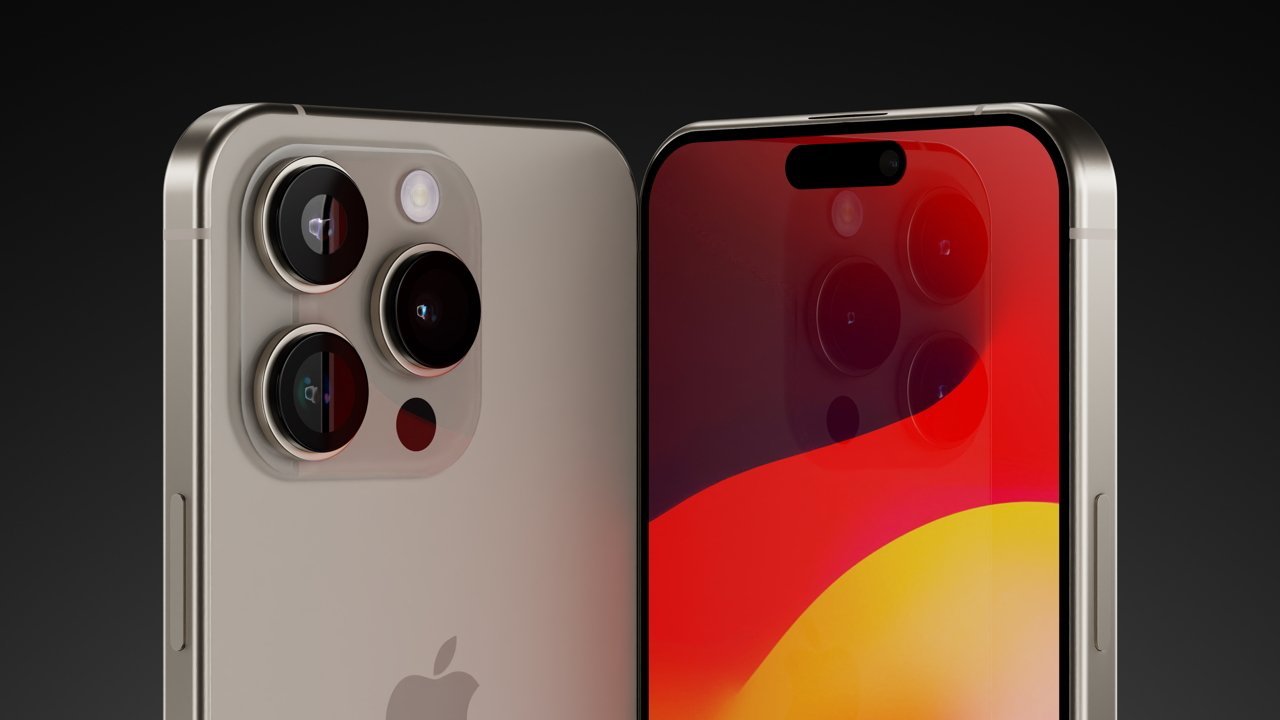Apple is not expecting an iPhone 16 upgrade super cycle, says analyst
Analyst Ming-Chi Kuo claims that Apple has ordered fractionally fewer iPhone 16 models than the iPhone 15, going against the idea that Apple Intelligence will prompt upgrades.

Renders of the forthcoming iPhone 16 range
Other analysts have previously said that Apple Intelligence will drive up iPhone 16 upgrades into a super cycle, and there have even been reports of Apple ordering more iPhones to be manufactured in expectation of such a super cycle.
One source arguing against a super cycle, though, has been Ming-Chi Kuo. In July 2024, he reported that suppliers such as Largan and TSMC had not seen an increase in orders that would indicate Apple expecting high sales.
Now in a new report, Kuo has doubled down on this and even said that Apple is expecting marginally fewer sales of the iPhone 16 range, at least initially.
iPhone 16 3Q244Q241Q25 EMS / iPhone 16 series production data update: shipment plans for 3Q24, 4Q24 and 1Q25, EMS order allocations, etchttps://t.co/quv9HKsWLf
-- (Ming-Chi Kuo) (@mingchikuo)
In his full blog post, Kuo says that Apple has ordered between 88 million and 89 million of the iPhone 16 range, compared to approximately 91 million of the iPhone 15 models.
He further reports that, based on his forecasts, the breakdown of different iPhone 16 model sales is expected to be:
- iPhone 16 on 26%
- iPhone 16 Plus on 6%
- iPhone 16 Pro on 30%
- iPhone 16 Pro Max on 38%
Kuo says that it's believed Apple has prepared between 15 million and 17 million iPhone 16 units for the pre-order demand. Over the whole of 3Q24, he predicts a growth of around 10% year over year compared to the iPhone 15 series.
However, this is not from increasing demand for the iPhone 16 Pro Max over its predecessor. It's because the iPhone 15 Pro Max had issues with its tetraprism camera that delayed initial shipments of the device.
Overall, Kuo predicts that then 1Q25 iPhone 16 sales will decline dramatically, by 53% to 55%. He says that is partially the normal seasonal decline, but that it may be exacerbated by the launch of a new iPhone SE 4.
Read on AppleInsider

Comments
My guess is that several years from now, iPhone 16 will be largely defined by what it was able to do mostly from a software perspective. These software differentiating features maybe largely be enabled by adequate system RAM (to accommodate larger AI/ML models) as well as increased NPU cores (Neural Engine). The Megahertz Wars have been over for 20+ years, it's not really about massive leaps in CPU specs.
Crappy third party batteries would be a hell of a fire risk I'd imagine. iPhone batteries can be replaced by authorized repair centers. Apple offers battery replacement services through their own stores as well as through Apple Authorized Service Providers (AASPs). These authorized repair places have access to genuine Apple parts and tools, ensuring that the replacement is done properly and without voiding the warranty. You can check for authorized repair providers near you through Apple’s website or visit an Apple Store for this service.
If users buy every 3 years then the only extra sales from AI are to 14 Pro, 14, and 15 customers. So... iPhone 16 should be relatively more interesting to upgraders.
And iPhone 14, 13, and SE will all be removed from all sales channels in EU before end-of-year. This will force sales towards iPhone 16.
The numbers could indicate that Apple will make the base iPhone less attractive and the fastest way of doing so would be to limit the price gap. That however is unexpected.
So, is Apple's next quarter the one that is going to see a large drop off? If so that is concerning because that is the holiday quarter and their strongest or is it Apple's 2Q which normally sees a drop off?
Given that this is an article about Apple I'd imagine that it makes the most sense to use Apple's fiscal calendar rather than the calendar year.